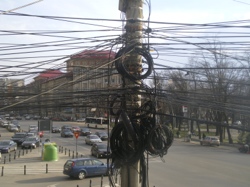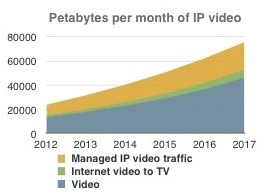Federal broadband grants would help level the playing field for California projects

Big state, big farms.
The version of the federal omnibus farm bill that was approved by the U.S. Senate last week improves the chances of actually building broadband infrastructure in areas of California where no service currently exists. That’s assuming the lack of service can be documented and withstand challenges from competing providers who might claim otherwise, which is a separate can of worms.
The legislation, which still has to be approved by the House, allows the Rural Utilities Service (RUS) to give outright grants to pay for broadband projects, in addition to its existing loan program.… More









